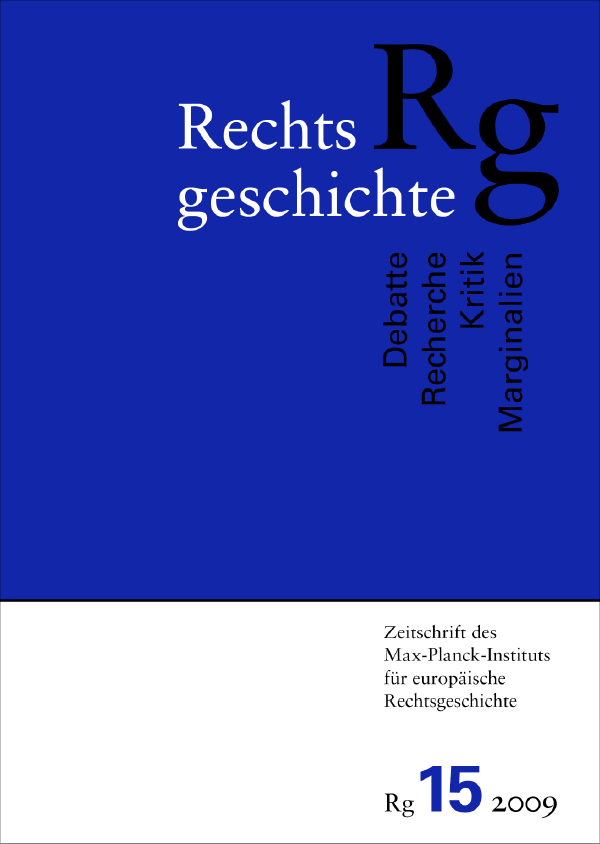Weltanschaulich-konfessionelle Aspekte im Werk reformierter Juristen
DOI:
https://doi.org/10.12946/rg15/014-032Abstract
The most recent research on confessionalization has focused on the structural parallels between denominations during the early modern period. However, the urgent question of whether or not individual denominations had an impact on culture in different degrees and forms, demands further investigation. In the field of legal science, there are only minor differences detectable in the works of Reformed and Lutheran jurists, while those between Protestant and Catholic-Tridentine scholars are considerably more significant. Catholic- Tridentine jurists, for instance, refused to acknowledge the agreements of the Peace of Augsburg, which banned legal enforcement against heretics (Ketzerrecht) and enhanced the rights and competence of the political authority in religious affairs. Lutheran and Reformed jurists, on the other hand, promoted the separate rights and competence of the temporal government. Reformed jurists, in particular, rejected canon law as a problematic confusion of law and theology. Instead, legal systems and reasoning in the Reformed tradition were grounded and built upon Roman law and permanent recta ratio recourses, which were seen as consistent with the genuine biblical religion that was threatened by papal superstitions. Altogether law faculties played a substantial role in the development of modern Protestant universities in the Holy Roman Empire. Similar developments were delayed on the Catholic side by the Jesuits' devaluation of legal studies which concentrated on civil law.
Downloads
Veröffentlicht
Zitationsvorschlag
Ausgabe
Rubrik
Lizenz
Copyright (c) 2009 Autor/in

Dieses Werk steht unter einer Creative Commons Namensnennung - Nicht-kommerziell - Keine Bearbeitung 3.0 International -Lizenz.





